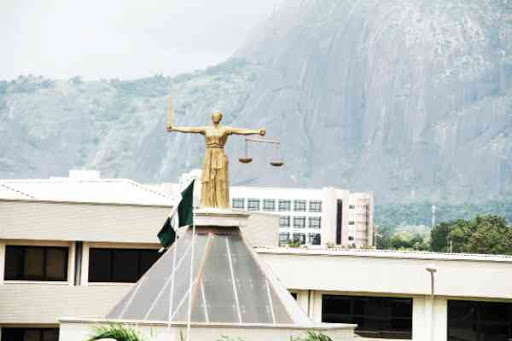
Justice Ishaq Bello of an Abuja High Court finally entered judgment in the case known as the Apo Six Trial on March 9, to the relief of a baffled nation which had been on tenterhooks for all of the eleven years the case lingered. Two of the arraigned police suspects, Emmanuel Baba and Ezekiel Achen, were sentenced to death on account of their confessional statements.As it turned out, six Abuja-based traders: Ifeanyi Ozo, Anthony Nwodike, Isaac Ekene, Paulinus Ogbonna, Chinedu Meniru, and the only female in the group, Augusta Arebum, while returning from a night party were stopped by a police team on an apparent stop-and-search duty. From there, things went awry. Four of them were killed extra-judicially in the initial shoot-out and the two others who had survived and were presented alive at the police station the day after, were mysteriously gunned down in an apparent desperate bid to cover up the crime.It was a most bizarre, but not unfamiliar occurrence, as the police went on to allege that the six victims were armed robbers, with “incriminating evidence”, to boot. It took the persistent cries of their relatives and witnesses to the crime to contradict the police and force a public inquiry into the matter. At the opening of a Joint Parliamentary Committee sitting on the matter, the then Senate President, David Mark, said Nigerians were interested in getting to the bottom of the matter and learning its useful lessons for posterity, to avoid a reccurrence.
Eleven years after, and with the conviction of two of the six culprits, can it be said that justice has been served? Hardly. The trial, taking all of eleven years was too long; and the immediate rejection of the verdict by the relatives of the victims as not going far enough, are evidence of a judicial system in need of urgent reform and a larger society in need of healing.Justice delayed is, indeed, justice denied. Having realised the extent of its culpability, the police made a bare-faced attempt at a cover-up. One of the six policemen who should have faced trial was never found. He has gone missing until now. And, as Justice Bello observed in his judgment, the forensic evidence which could have led to the nailing of DCP Ibrahim Danjuma, who allegedly gave the instruction for the killing of the Apo Six, was tampered with and could not be relied upon absolutely. Nor, was the claim by the convicted two that they were obeying an order from their superiors enough defence for their culpability. In criminal matters, where the standard of proof is: “beyond reasonable doubt”, this is understandable.There is need for diligent prosecution and timely adjudication of cases before the judiciary at all times. That we cannot take these for granted in our country is a cause for concern, which should engage the attention of all stakeholders, especially the legislature and the judiciary. The two branches have responsibility for the making of the laws and their interpretation.Given the outrage the judgment has drawn in some quarters and the lapses observed in the prosecution of the case at the court of first instance, there is, perhaps, a good ground for an appeal of the case by the authorities concerned.To put it mildly, it beggars belief that four of the policemen at the scene of the crime were left off lightly for apparent want of diligent prosecution. The souls of the dead, and the conscience of a bruised nation need to be placated, and the only way to assure this is to see that justice is done in the end.The federal government too, as a necessary follow-up, should consider compensating the families of the unfortunate victims without any legal prompting. It is one way of ameliorating the pains of the loss of loved ones by the immediate families concerned and to reassure the citizenry at large that the security of lives and property remains a priority for government. It is also to teach the lesson that impunity, from whichever quarters, will not be tolerated.Source : The Sun
